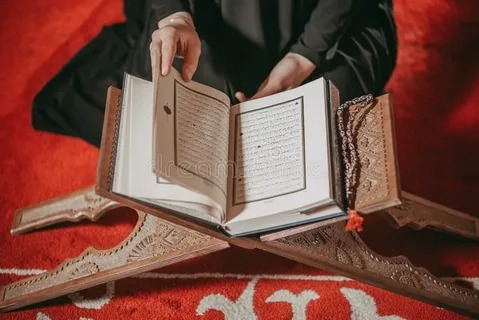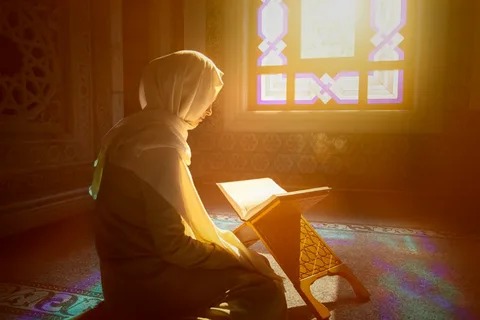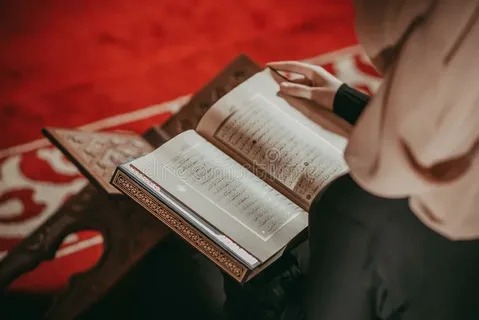The Quran, the holy scripture of Islam, is a book revered by billions of people worldwide. It serves as a guide for personal conduct, morality, and spirituality. Within its pages, the Quran mentions various historical figures, including prophets, leaders, and women who played pivotal roles in shaping the course of history. In this article on Arabian Tongue website, we will delve into the lives of some remarkable women mentioned in the Quran, exploring their significance and the lessons we can draw from their stories.
Who are the women mentioned in the Qur’an?

In a world where these qualities are as relevant as ever, the stories of these women continue to inspire generations of believers. As we reflect on their lives, let us draw inspiration from their stories and strive to emulate their virtues in our own lives:
Maryam (Mary) – The Mother of Jesus
Maryam, known as Mary in Christianity, holds a special place in both Islamic and Christian traditions. The Quran narrates the miraculous birth of Jesus (Isa), who is considered a prophet in Islam. Maryam’s piety and devotion are highlighted in her story, as she was chosen by Allah to give birth to Jesus without a human father. Her unwavering faith and submission to God’s will exemplify the Quran’s emphasis on the importance of faith and obedience.
Asiya – The Pharaoh’s Believer
Asiya, the wife of Pharaoh, is another remarkable woman mentioned in the Quran. Her story showcases incredible courage and conviction. Despite being married to a tyrant, Asiya embraced monotheism and refused to follow her husband’s oppressive beliefs. Her unwavering faith in Allah led her to adopt the baby Moses (Musa) when he was placed in a basket in the river Nile. Asiya’s story teaches us the importance of standing up for our beliefs, even in the face of adversity.
Khadijah – The First Believer
Khadijah, the first wife of the Prophet Muhammad (peace be upon him), is revered as one of the most prominent women in Islam. She was a successful businesswoman who hired Muhammad to manage her trade caravan, eventually leading to their marriage. Khadijah’s unwavering support for her husband during the early years of Islam played a crucial role in the spread of the faith. Her story highlights the significance of strong, supportive partnerships in building a successful community.
Hagar (Hajra) – The Mother of a Great Nation
One of the prominent women in the Quran is Hagar, also known as Hajra. She was the wife of the Prophet Ibrahim (Abraham) and the mother of his son, Isma’il (Ishmael). Hagar’s story is one of resilience and faith. According to Islamic tradition, when Ibrahim left her and Isma’il in the barren desert of Mecca, she faced immense challenges. With unwavering trust in Allah, Hagar’s search for water led to the discovery of the sacred well of Zamzam, which still flows today, providing sustenance to countless pilgrims during Hajj.
Rights of Women in the Quran

The Quran, as the ultimate source of guidance for Muslims, lays out a framework for the rights and responsibilities of both men and women. Contrary to common misconceptions, Islam advocates for the rights and dignity of women, providing them with a comprehensive set of rights that ensure their welfare and well-being.
Recommend: first woman to enter jannah.
1. Equality in the Eyes of Allah
Islam teaches that men and women are equal in the eyes of Allah. The Quran explicitly states in Surah Al-Hujurat (49:13), “O mankind, indeed We have created you from male and female and made you peoples and tribes that you may know one another. Indeed, the most noble of you in the sight of Allah is the most righteous of you.”
This verse underscores that all human beings, regardless of their gender, are equal in their piety and devotion to Allah.
2. Respect and Dignity
One of the fundamental rights accorded to women in the Quran is the right to respect and dignity. Surah Al-Ahzab (33:33) emphasizes that women should be treated with honor and respect, safeguarding their physical and emotional well-being.
3. Financial Rights
The Quran also addresses the financial rights of women. In matters of marriage and divorce, women have the right to receive a dowry (mahr) from their husbands. This financial provision ensures that women have economic security and are not left vulnerable.
4. Right to Education
Islam encourages the pursuit of knowledge for both men and women. The Quran promotes education as a means to enlightenment and personal growth. It is essential to note that Islam does not discriminate against women’s education but rather encourages it.
Read about: Fatimah bint Muhammad.
5. Marriage and Consent
The Quran mandates that marriage must be based on mutual consent. Both partners have the right to accept or reject a marriage proposal, and no one should be forced into marriage against their will.
6. Right to Work
Women in Islam are allowed to work and engage in business activities if they wish to do so. Their earnings are entirely theirs, and they are not obligated to contribute financially to their households.
7. Legal Rights and Testimony
In legal matters, the Quran acknowledges the competence and integrity of women as witnesses. Contrary to some misconceptions, women can provide testimony in legal proceedings, including contracts and court cases.
8. Protection from Abuse
The Quran condemns any form of abuse or violence, emphasizing the importance of treating one another with kindness and compassion. Domestic violence and mistreatment of women are unequivocally condemned in Islamic teachings.
9. Parental Rights
Women have significant rights as mothers. They are responsible for the upbringing and care of their children, and their efforts in this regard are highly valued in Islam.
10. Divorce and Custody
Divorce is permissible in Islam, but it should be pursued with fairness and kindness. The Quran provides guidelines for divorce proceedings, including the fair distribution of property and custody of children.
11. Inheritance
The Quran prescribes a clear system of inheritance, ensuring that women receive their fair share of the deceased’s wealth. Women are entitled to inherit from their parents, spouses, and relatives, just as men are.
12. Social and Spiritual Equality
Women have the same opportunities as men to engage in acts of worship, seeking spiritual growth and closeness to Allah. They can pray, fast, give to charity, and participate in religious activities without restrictions.
13. Common Misconceptions
Many misconceptions surround the rights of women in Islam. It’s important to differentiate between cultural practices and the genuine teachings of the Quran. Islam’s teachings emphasize equality and respect for women.
Learn Now: Online Arabic Classes for Beginners.
FAQs
Who was Hagar in Islamic tradition?
Hagar, also known as Hajra, was the wife of the Prophet Ibrahim (Abraham) and the mother of Isma'il (Ishmael). Her story is one of resilience and faith.
Why is Maryam (Mary) significant in Islam?
Maryam holds a special place in Islam as the mother of Jesus (Isa), a prophet in Islamic tradition. Her miraculous birth of Jesus without a human father is a key element of her significance.
What did Asiya do to defy tyranny?
Asiya, the wife of Pharaoh, defied her husband's oppressive beliefs and adopted the baby Moses (Musa) when he was placed in the river Nile, showcasing her unwavering faith.
Why is Khadijah important in Islamic history?
Khadijah, the first wife of Prophet Muhammad, was a successful businesswoman whose support played a crucial role in the early years of Islam's spread.
How can we apply the lessons from these women's stories in our lives?
We can apply the lessons of faith, resilience, and determination from these women's stories by emulating their virtues in our own lives and standing up for our beliefs in the face of adversity.
Conclusion
The Quran, with its rich narrative, provides insight into the lives of various women who left indelible marks on history through their faith, resilience, and unwavering commitment to their beliefs. From Hagar’s survival in the desert to Maryam’s miraculous motherhood, from Asiya’s defiance of tyranny to Khadijah’s unwavering support, these women’s stories offer valuable lessons in faith, determination, and the power of conviction.


